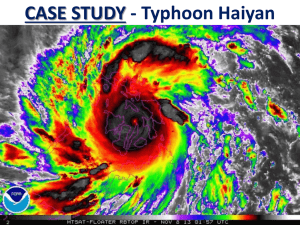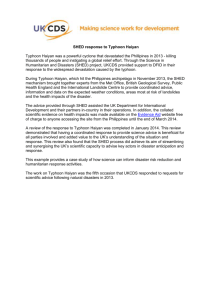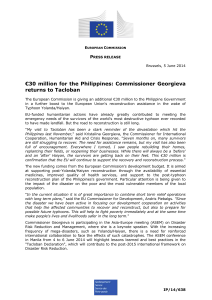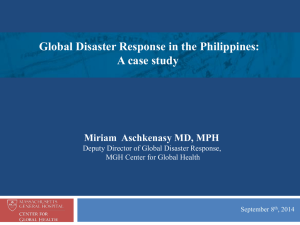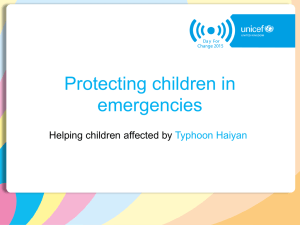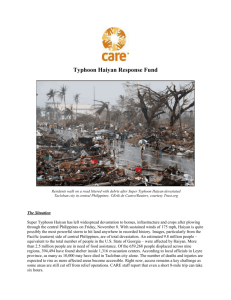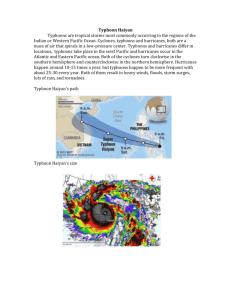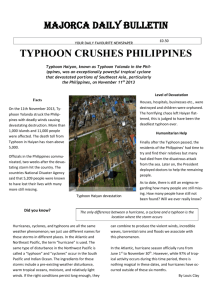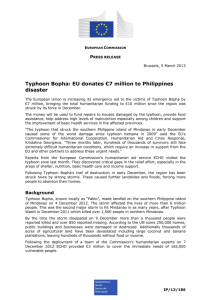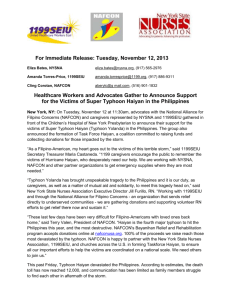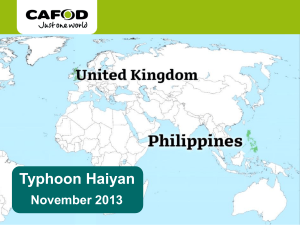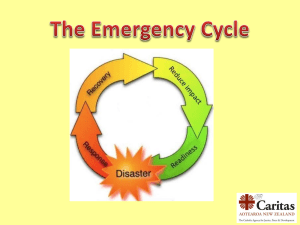DOC - Europa
advertisement
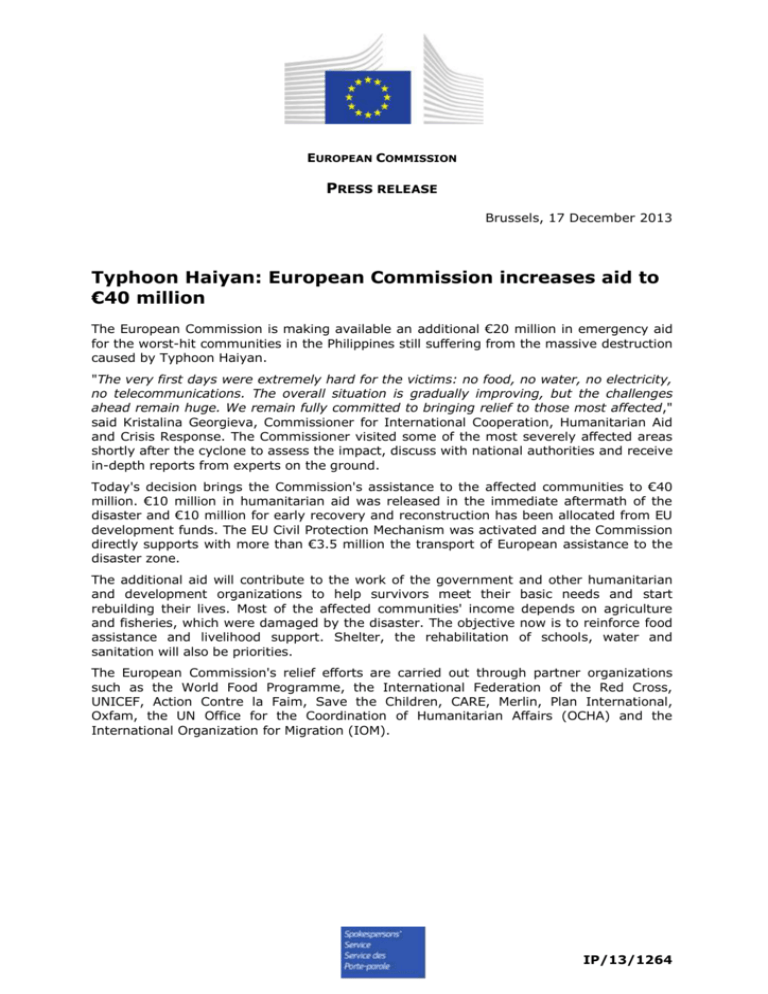
EUROPEAN COMMISSION PRESS RELEASE Brussels, 17 December 2013 Typhoon Haiyan: European Commission increases aid to €40 million The European Commission is making available an additional €20 million in emergency aid for the worst-hit communities in the Philippines still suffering from the massive destruction caused by Typhoon Haiyan. "The very first days were extremely hard for the victims: no food, no water, no electricity, no telecommunications. The overall situation is gradually improving, but the challenges ahead remain huge. We remain fully committed to bringing relief to those most affected," said Kristalina Georgieva, Commissioner for International Cooperation, Humanitarian Aid and Crisis Response. The Commissioner visited some of the most severely affected areas shortly after the cyclone to assess the impact, discuss with national authorities and receive in-depth reports from experts on the ground. Today's decision brings the Commission's assistance to the affected communities to €40 million. €10 million in humanitarian aid was released in the immediate aftermath of the disaster and €10 million for early recovery and reconstruction has been allocated from EU development funds. The EU Civil Protection Mechanism was activated and the Commission directly supports with more than €3.5 million the transport of European assistance to the disaster zone. The additional aid will contribute to the work of the government and development organizations to help survivors meet their rebuilding their lives. Most of the affected communities' income and fisheries, which were damaged by the disaster. The objective assistance and livelihood support. Shelter, the rehabilitation sanitation will also be priorities. and other humanitarian basic needs and start depends on agriculture now is to reinforce food of schools, water and The European Commission's relief efforts are carried out through partner organizations such as the World Food Programme, the International Federation of the Red Cross, UNICEF, Action Contre la Faim, Save the Children, CARE, Merlin, Plan International, Oxfam, the UN Office for the Coordination of Humanitarian Affairs (OCHA) and the International Organization for Migration (IOM). IP/13/1264 Background Typhoon Haiyan (locally named Yolanda) is one of the strongest cyclones ever recorded. It struck the Philippines in early November, causing massive devastation in the central regions. Over 6 000 people have been officially reported dead, 1 770 are missing, four million displaced and between 14 and 16 million affected, out of which six million are children. The Philippines is one of the most disaster-prone countries in the world, with several earthquakes and around 20 typhoons per year. This year alone the European Commission has provided significant humanitarian assistance to the archipelago: €2.5 million has been made available for the response to the earthquake which struck Bohol and surrounding provinces two months ago; for Typhoon Bopha (Pablo) a total of €10 million has been released to help rebuild the communities devastated by the cyclone which hit SouthEastern Mindanao in December 2012; following flooding caused by Typhoon Trami (Maring) in August ECHO committed €200 000 to assist those affected, and €300 000 was allocated in October for those displaced by the conflict in Zamboanga. For more information Factsheet on Typhoon Haiyan: http://ec.europa.eu/echo/files/aid/countries/factsheets/philippines_haiyan_en.pdf IP/13/1088: More aid to survivors of Typhoon Haiyan as Commissioner Georgieva visits the Philippines IP/13/1059: European Commission releases emergency funds to help victims of tropical cyclone Haiyan IP/13/1063: The EU responds to Haiyan disaster with coordinated relief efforts IP/13/1068: EU mobilises new support to the Philippines' reconstruction The European Commission's humanitarian aid and civil protection: http://ec.europa.eu/echo/index_en.htm Commissioner Georgieva's website: http://ec.europa.eu/commission_2010-2014/georgieva/index_en.htm Contacts : Irina Novakova (+32 2 295 75 17) David Sharrock (+32 2 296 89 09) 2
